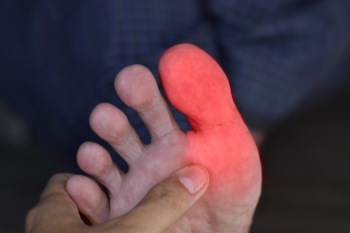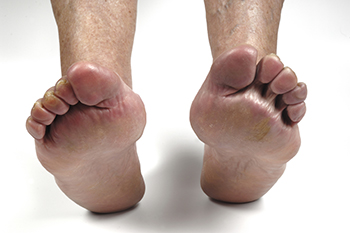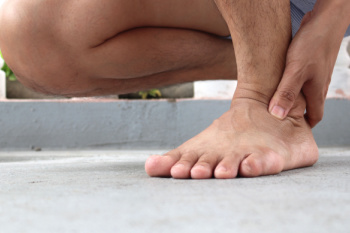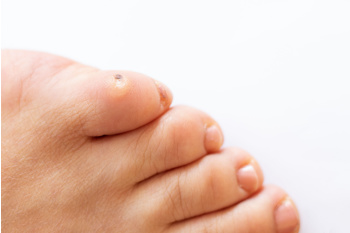
Sesamoiditis is characterized by inflammation or injury to the sesamoid bones, small bones located beneath the big toe joint in the foot. It commonly affects individuals involved in activities that put repetitive pressure on the ball of the foot, such as dancers, runners, or those who wear high heels. The condition can cause pain, swelling, and difficulty walking, particularly when bearing weight on the affected foot. Diagnosis typically involves a physical examination, imaging studies like X-rays or MRI scans, and evaluation of symptoms. Treatment options may include rest, taping of the foot, orthotic devices, or corticosteroid injections. In severe cases, surgery to remove or repair the sesamoid bone may be necessary. If you have big toe pain, it is suggested that you schedule an appointment with a podiatrist for a tailored treatment plan for your specific needs.
Sesamoiditis is an unpleasant foot condition characterized by pain in the balls of the feet. If you think you’re struggling with sesamoiditis, contact one of our podiatrists of Associates in Podiatry. Our doctors will treat your condition thoroughly and effectively.
Sesamoiditis
Sesamoiditis is a condition of the foot that affects the ball of the foot. It is more common in younger people than it is in older people. It can also occur with people who have begun a new exercise program, since their bodies are adjusting to the new physical regimen. Pain may also be caused by the inflammation of tendons surrounding the bones. It is important to seek treatment in its early stages because if you ignore the pain, this condition can lead to more serious problems such as severe irritation and bone fractures.
Causes of Sesamoiditis
- Sudden increase in activity
- Increase in physically strenuous movement without a proper warm up or build up
- Foot structure: those who have smaller, bonier feet or those with a high arch may be more susceptible
Treatment for sesamoiditis is non-invasive and simple. Doctors may recommend a strict rest period where the patient forgoes most physical activity. This will help give the patient time to heal their feet through limited activity. For serious cases, it is best to speak with your doctor to determine a treatment option that will help your specific needs.
If you have any questions please feel free to contact our offices located in Pittsburgh-South Hills, and Pittsburgh-Bellevue, PA . We offer the newest diagnostic and treatment technologies for all your foot and ankle needs.




